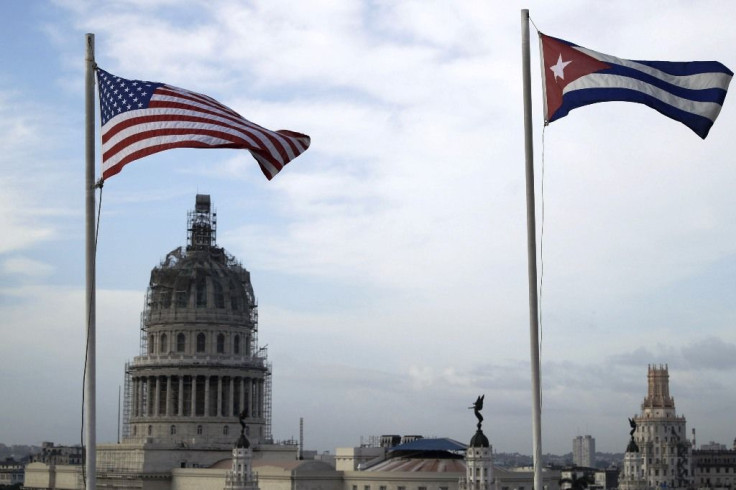Cuba Sound Attack, High-Pitched Noise Used Against Diplomats Released

Last month the State Department announced that it was pulling all non-essential employees from the United States embassy in Cuba. The State Department said that 21 employees had suffered from attacks of an “unknown nature” that caused a range of symptoms including but not limited to hearing loss, nausea and headaches. Similar symptoms to those that would be associated with possible sonic attacks.
The State Department however said in a statement, “ Investigators have been unable to determine who is responsible or what is causing these attacks.” Thursday the Associated Press released a recording of what some U.S. Embassy workers were experiencing during their time in Cuba. The recording is of the sound that eventually led investigators to think there was a sonic weapon in use against United States government employees, reported the AP.
The sound, which is okay to listen to for a short period of time at a regular volume, was published to AP’s website as well as YouTube on Thursday. It sounds similar to what loud crickets or multiple mosquitos might sound life if they were amplified. The high pitched noise is what could have been causing the symptoms in diplomats.
A sonic weapon, used for a sonic attack, is usually constituted by the use of sound waves that can cause physical symptoms with long-term exposure. They can sometimes be undetectable by the human ear depending on what frequency the sound waves are. Some sonic weapons can be heard by humans, like those used during riots for crowd control. Diplomats may have been experiencing these types of attacks at their homes as well as in the workplace during their time in Cuba.
In August, Heather Nauert, the State Department spokesperson, gave a news conference during which she discussed the attacks briefly. “So some U.S. Government personnel who were working at our embassy in Havana, Cuba on official duties – so they were there working on behalf of the U.S. embassy there – they’ve reported some incidents which have caused a variety of physical symptoms,” she told press. This statement was then backed up by the written statement from the department in September.
The department announced last week that it was ordering the departure of 15 Cuban officials from the embassy in Washington D.C. after Cuba failed to protect American diplomats in Cuba, said a statement from the department. The statement also said, “We continue to maintain diplomatic relations with Cuba, and will continue to cooperate with Cuba as we pursue the investigation into these attacks.”
So far nobody has been held accountable or determined to be the source of the sonic attacks. The situation is under investigation.
© Copyright IBTimes 2025. All rights reserved.




















